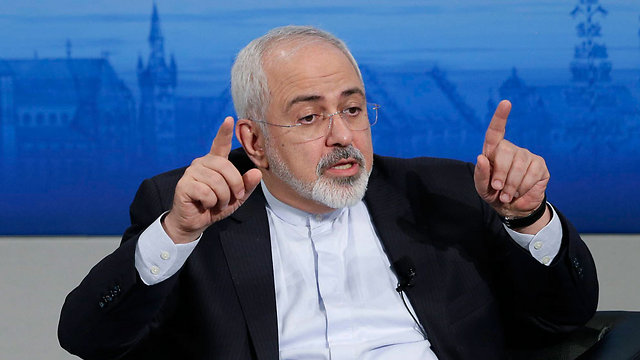Iran reaches deadline day – but what happens next?
Camelia Entekhabi-Fard/Al Arabiya
Tuesday, 31 March 2015
While most of the foreign diplomats present in Lausanne for the most important session of the Iranian nuclear talks have described the meetings as hard, they have also talked of progress and hopefulness. Just a day before the March 31 deadline – a date which was arranged and agreed by Iran and the U.S. in Vienna last November with the hope of reaching a political agreement – today this will have changed.
A day before this ‘soft deadline,’ the tone of the major negotiators changed in a way which indicated there were still issues – quite important ones – which need more time to be worked on to find solution. This March 31 deadline is not the one that closes the door to further negotiations if they fail. The actual deadline, which has been extended twice, has been set for July 1.
But in order to pave the road and reach a comprehensive deal, this midway-agreement has to be reached. Ultimately the right path for Iran and the U.S. is to use diplomatic efforts to reach a deal Iranians insist the sanctions are the major issue which remains on the table, and the Americans are talking about the number of centrifuges. Not all the sanctions can be lifted in a comprehensive agreement, as some have been imposed by the U.N. Security Council and it may take time for the IAEA inspectors to send their reports to the U.N. when Iran fulfills its obligations.
If there are no sanctions lifted early, and no less than 9K centrifuges accepted by Iran and the U.S., then somehow we can understand the problems that create the barrier against the nuclear deal. Of course there are still some problems and sincere ones, but during these 18 months of negotiations there has also been great progress for both Iran and the U.S. Iran’s economy has been boosted since the interim agreement reached in Vienna, in November 2013. The release of the partially frozen Iranian oil revenue helped the government of Hassan Rouhani improve the economy and inflation, while the talks continued with the Western powers.
Choices will be limited if Iran isn’t satisfied with the terms and conditions proposed by the Western powers and the U.S.. For both Iran and the U.S. there are different reasons for the continuation of the talks. The political changes in the region might not work to Iran’s advantage, therefore it needs to seek a final deal sooner rather than later.
Speedy resolution needed
Furthermore, next year’s budget has already taken a hit from the significant drop in the price of oil. Securing the final deal will pave the path to attract foreign investment to offset the balance, not to mention Iran’s access to billions of dollars of its own assets that are frozen or deposited outside the country. Iran will gain much from a final deal, to include the potential to end the decades-long disputes between it and other world powers. Ultimately the right path for Iran and the U.S. is to use diplomatic efforts to reach a deal, even if other parties fail to fulfill their obligations.
In my opinion what makes the talks continue without any sense of tiredness or disappointment is the urgent need to find a peaceful solution for this nuclear issue that has been lagging for years. But the Iranian people need a speedy resolution, as any delay in signing a deal increases the risk of no deal at all and that will keep sanctions in place. Iran’s top nuclear negotiator Abaas Araghchi on March 29, told Iran State TV that most of the issues have been solved, but two or three remain, which need more time to be addressed. Araghchi, who was talking live on camera in a very calm and peaceful manner, and with confident body language, expressed his hope to anxious Iranians, who are on National New Year’s holidays, that everything was under control and the negotiation team was working hard and giving it their best.




















